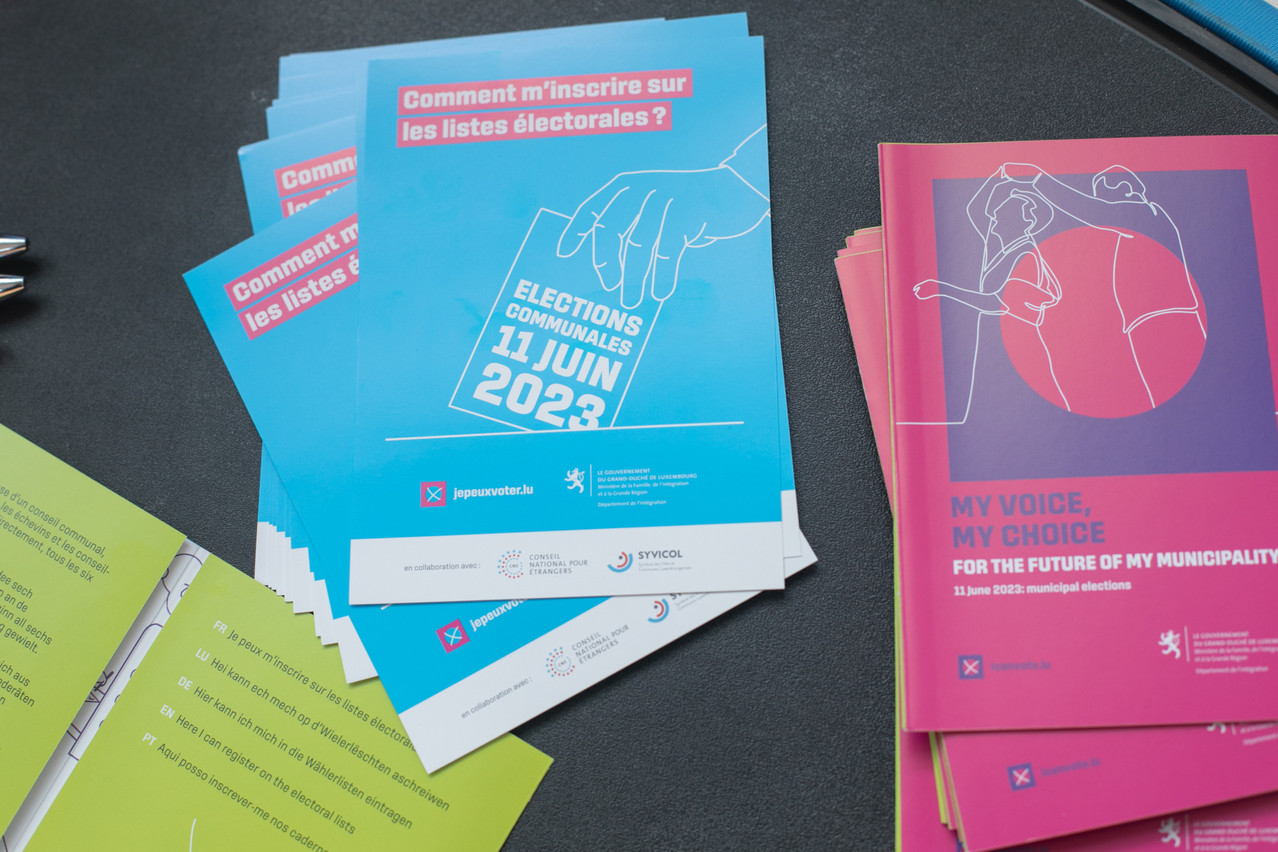For the first time this year, foreigners in Luxembourg can vote in the local elections even if they have only recently moved to the country after a five-year residency requirement was abolished last year. However, they had to register to vote in their commune by 17 April to be able to cast their ballot.
“You can always look at a glass half full or half empty,” said family and integration minister during a press conference. “The last two months have been an enormous success.”
While at the end of February just 32,197 foreign were signed up, this number rose to 50,084 people from 162 nationalities by 17 April.
“People in all parties worked extremely hard,” said Cahen. “The very intensive campaign yielded results.”
Voter registration closes 55 days before the election, down from 87 days. “That month was really beneficial,” said Cahen of the extra time. “We would have preferred that you can register until two days before the election,” she said, but this isn’t possible for administrative reasons as lists need to be verified.
For the 2017 local elections 40,621 people signed up to vote. This was a rate of 22.8%. Unless people de-register from the list, move away or gain Luxembourg citizenship, they remain on the register for the next election.
When removing people who have lived in Luxembourg for less than five years--and wouldn’t have previously been eligible--from this year’s tally, the registration rate stands at 23.6%.
Dutch frontrunners
More EU citizens registered to vote (21% of eligible voters) compared to non-EU nationals (15.3%). Foreigners who have lived in Luxembourg for ten years or more were also turned out in higher numbers (27.2%) than those who have lived in Luxembourg for less than five years (11.8%) or between five to nine years (15.3%).
The Dutch remained at the top of the leader board with a registration rate of 29.2%, closely followed by Germans (29%), Danes (26.4%), Indians (25.6%) and Belgians (24.2%).
Cahen pointed out that targeting community events during the last couple of months had shown its impact as well as the recruitment of ambassadors within different groups. At the end of February only 5.7% of eligible Indian nationals had signed up to vote. The rate of Turkish voters rose from 5.8% to 22.7%. And for the Syrian community it rose from 0.7% to 8.3%.
And while Luxembourg City at the end of February showed the lowest voter registration rate of any commune--8.1%--it no longer ranks at the bottom of the list, having progressed to 15.9%.
This means 12,626 non-nationals out of 68,504 eligible voters will be heading to the polls in the capital, compared to 32,090 Luxembourg nations. More than 70% of the city’s population don’t hold a Luxembourg passport.
Bech led voter registration and has signed up 49.6% of its international residents to vote. Foreigners from 35 nationalities make up roughly a quarter of the commune’s population. Parc Hosingen now closes the list with a registration rate of just 13.2%.
Best practices
Cefis, an intercultural and social research and training centre, will continue analysing the data to gain a better insight into the backgrounds of people who signed up to vote but also what efforts communes undertook to engage them.
Together with the Syvicol union, which represents the interests of Luxembourg’s communes, this should lead to a best practices guide ahead of the next local elections in 2029.
That includes systematically signing up new arrivals when they register in their commune regardless how long to go until the next vote. “We absolutely want this,” said Cahen. “We want to hear everyone’s voice.”
The I Can Vote campaign will now continue to inform those who registered on the possibility to vote by post and how to correctly fill in the ballot paper.
